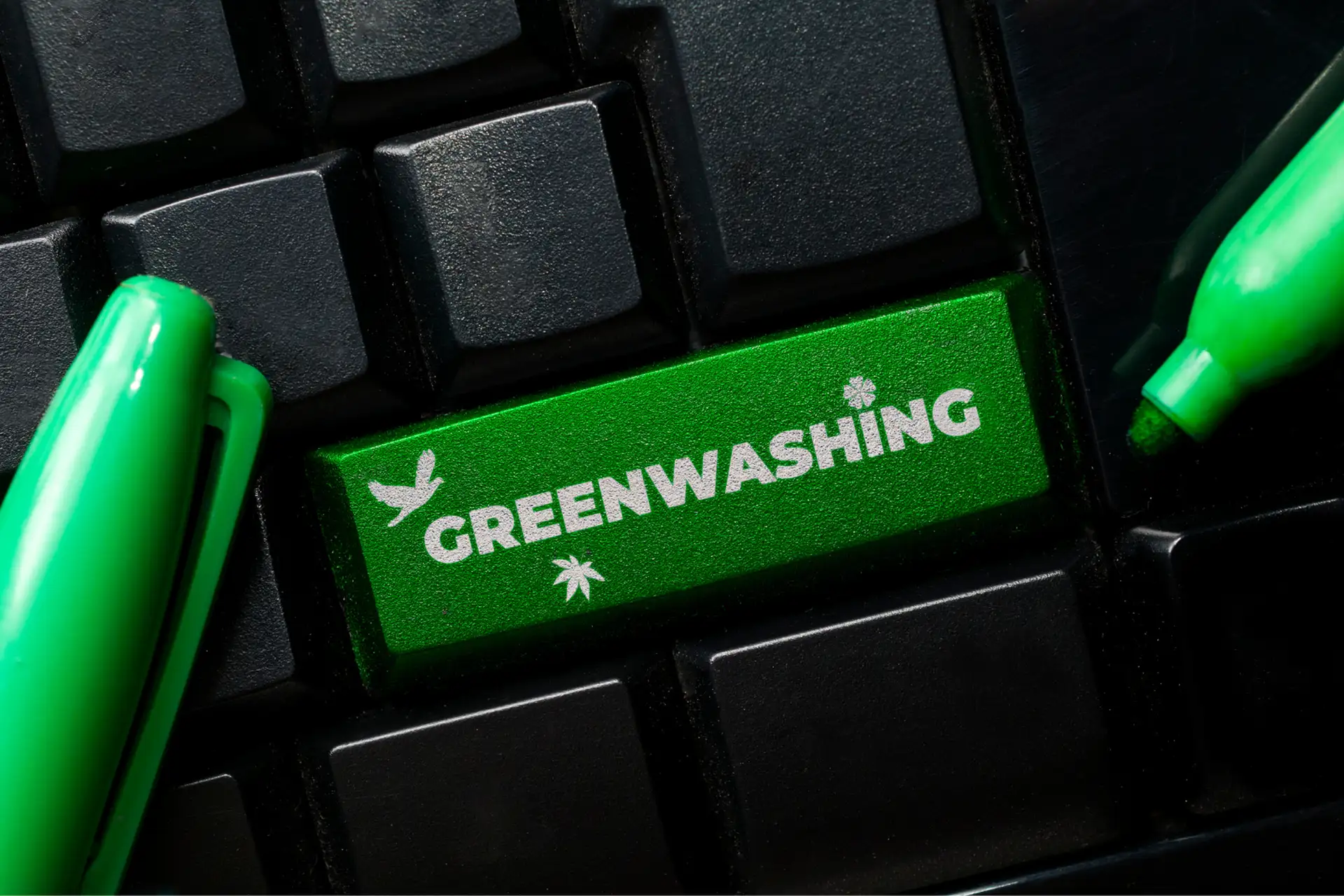Greenwashing: EU directives and carbon neutrality labels
Reading Time: 3-4 minutes
Reading Time: 3-4 minutes

Demand from consumers for more sustainable products is growing constantly. To answer to it, more and more businesses try to show their commitment to the environment by adopting concrete measures. At the same time, other companies choose to adopt misleading marketing practices, with the goal to attract consumers by giving them the impression that their environmental engagement is greater than it really is.
National and international institutions have become aware of this practice, which is called greenwashing, and they’ve started to take legal action by creating stricter regulations.
In this article, we will explore what the current EU directives are, focusing specifically on those concerning carbon neutrality labels, and what your company can do to avoid greenwashing.
Greenwashing is a marketing practice aiming at giving consumers the impression that a service, product or company is more sustainable than how it really is.
This is done in various ways. For example, by using labels that aren’t regulated and recognized by public authorities, by communicating only about the sustainable practices of a company, even if they only represent a small part of their activities, or by using visual elements that consumers often associate with sustainability (e.g. green, brown and/or textured paper, etc.).
A very well-known example is that of fossil fuel companies. In their communication, these giants often put the accent on their commitment to renewable energy, even if their whole business model is largely based on very polluting activities, such as the extraction and distribution of fossil fuels.
Until recently, institutions mainly favored self-regulation when it came to sustainable marketing practices. In other words, there were no specific laws concerning these practices. The Jury d’Éthique Publicitaire (JEP) considered it unnecessary to legislate in this area, as the law already prohibits any unfair commercial practices that mislead the consumer.
However, the current context has shown how self-regulation isn’t enough. In 2021, a study led by the European Commission revealed that more than half of the 344 analyzed websites claim to be sustainable, while not providing the means to actually verify the allegation. This is one of the reasons why governments and institutions have started to create laws and regulations to sanction companies that practice greenwashing.
In Belgium, the misuse of labels such as “carbon neutral”, “zero carbon”, “climate neutral”, “fully offset” is considered an unfair commercial practice and is therefore prohibited. Under the Belgian Code of Economic Law, companies using such practices are liable to a fine of up to 80,000 euros.
In France, this fine can amount to up to 100,000 euros, in accordance with the decree supplementing the Climate and Resilience Act of August 22, 2021. For TV advertising campaigns, the fine can reach several million euros.
If, as a Belgian consumer, you notice a dubious environmental claim, you can report it to the Economic Inspectorate contact point.
In May 2023, a proposal for a new directive was adopted by the European Parliament aimed at regulating generic environmental claims and guiding consumers to make more conscious choices.
In addition to banning generic claims such as “environmentally friendly”, “natural”, “ecological”, etc., this new directive aims to prohibit carbon neutrality claims based solely on carbon offsetting. Indeed, carbon offsetting is not an effective instrument in the fight against climate change, nor does it replace a strategy aimed at directly reducing a company’s greenhouse gas emissions.
To simplify product information, the directive plans to authorize only sustainability labels based on official certification systems or established by public authorities.
The Belgian Ministry of the Economy has published a guide to environmental claims, providing best practices for companies wishing to avoid greenwashing.
A concrete tool that helps companies avoid greenwashing is a carbon report. By measuring and assessing greenhouse gas emissions, companies can understand their impact and take concrete action to reduce it. By providing data and tangible evidence of their actions, they can prove their real commitment to sustainability, establish their credibility and avoid being accused of greenwashing.